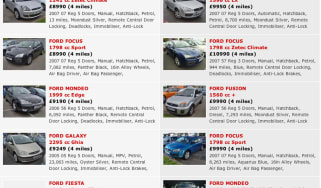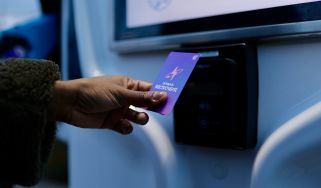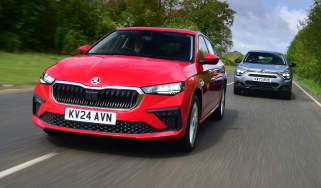Car insurance write-off categories explained: what are Cat N and Cat S cars?
Cat S and Cat N insurance write-off classifications replaced the old Cat C and Cat D groups in 2017; but what do they mean and how do they work?
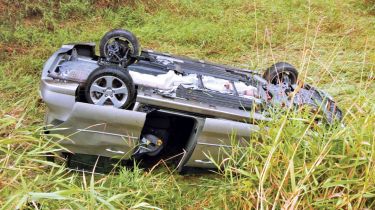
Insurance write-off categories are applied to cars that have been structurally or cosmetically damaged as the result of a collision, fire, theft, flooding or vandalism. A car is written-off when an insurance claim has been filed and the car is declared ‘uneconomical to repair’. This means that returning it to a road-worthy state would cost more than the value of the car itself.
There are four different insurance write-off categories, each one represented by a letter indicating the severity of the damage. In some cases, the damage will be minimal enough that a write-off car can be safely and legally repaired and returned to the road. In order to prevent any future buyers from being misled, these cars will forever be labelled as Category S if the damage is structural, or Category N if the damage is purely cosmetic.
If the damage to the car is more severe, however, the written-off car will not be permitted to ever return to the road. If some parts can be salvaged, the car will be designated as Category B. If a car is completely beyond salvation, it must be crushed immediately and will find itself in Category A as a result. Attempting to repair and resell a Cat A or B car is both illegal and dangerous.
Unlike a Cat A or Cat B car, you can buy a used Cat N or Cat S car on the open market, but is this a good idea? There are extra risks to be taken into account when purchasing a write-off, so caution is advised. What are these risks, though, and is it really worth it? We cover everything you need to know about car insurance write-off categories below.
Insurance write-off categories at a glance
- A: Scrap
- B: Break
- S: Structurally damaged repairable
- N: Non-structurally damaged repairable
What is an insurance write-off?
A car is declared an insurance write-off if an insurer deems it too expensive to repair following a claim. A claim might result from a collision on the road or damage caused by incidents such as a fire, flood, vandalism or theft. When you make a claim, the insurance company will assess the extent of any cosmetic or structural damage to judge if the car is worth repairing.
Should the insurance assessor find that the repair work required is uneconomical, as the cost of repairs would be more than the value of the repaired car, they will assign a car an insurance write-off category. This indicates the extent of the damage and the nature of any repairs that will need to be carried out to make the car roadworthy again. The write-off category must be declared by anyone selling the car in the future, to give potential buyers an indication as to what to look out for.
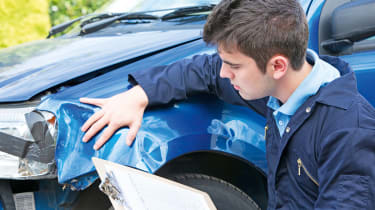
What is Cat N damage?
The Cat N insurance write-off classification encompasses all non-structural damage to elements such as body panels, lights and electrical systems. Cat N vehicles can legally be put back on the road, but the Driver and Vehicle Licensing Agency (DVLA) must be informed that a car has been written-off in the first place.
What is Cat S damage?
A Cat S car is one which has sustained structural damage. This applies to areas that are integral to the car's structure such as the chassis and suspension. While Cat S cars can safely and legally be repaired and put back on the road, they must be re-registered with the DVLA beforehand. Structural damage can be much more difficult to spot than cosmetic damage, as it will probably be obscured by a body panel which may have been replaced.
If you are considering buying a Cat S car, we recommend paying for a professional inspection before any money changes hands, as a disreputable seller may try to hide any poor or non-existent repairs.
What does Cat S and Cat N damage mean for buyers?
The write-off categories are intended to reflect the type of damage sustained by a car that caused it to be written off. Knowing this information will go some way towards helping any potential future buyers understand what to look for when inspecting a potential purchase. Knowing that a car was previously structurally damaged is particularly important, as poor repairs can be easier to hide from all but the most thorough of inspections. These can then quickly become very costly or even downright dangerous.
All sellers, whether trade or private, are required to declare if a vehicle has been previously written-off at any time. However, there are some dishonest people out there, so conducting a background check, such as those undertaken by Hire Purchase Investigation (HPI), should reveal this categorisation as an alert on the car’s history. The registration certificate, known as the V5C, will also be marked with an ‘S’ to signify that the car has been salvaged.
What are Cat A and Cat B cars?
If a car is damaged beyond the point that an insurer believes it can be safely returned to the road, it will be classified as either Cat A or Cat B. Cat A cars have to be crushed, and none of their parts can ever legally be reused. Cat B cars — the ‘B’ stands for ‘break’ — also have to have their body shells crushed, but can be broken up for parts before that happens. Salvageable components can then be resold.
You shouldn’t ever see either of these categories in the used car classifieds, but if a background check reveals that a car is either a Cat A or Cat B write-off, walk away immediately.
What are Cat C and Cat D cars?
In 2017, Cat N and Cat S replaced the older Cat C and Cat D categories to help better represent the complexity involved in repairing modern cars. If you are searching for a used car, it is important to note that old cars which were originally assessed through the old system prior to October 2017 won’t be reassessed, so they may still have Cat C or D classifications.
We also have a detailed guide to the old Cat C and Cat D write-off categories…
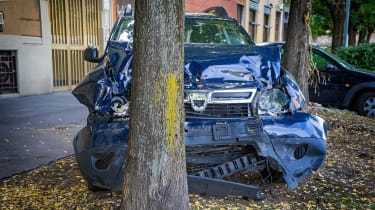
Should I buy a Cat S or Cat N car?
The same golden rule applies to both Cat N and Cat S cars if you’re thinking of making a purchase: buyer beware. A Cat S or Cat N car that has been repaired to a very high standard could prove to be a cost-effective purchase, but thorough research and caution are essential as every car is different. These are the most important things to consider:
- History: Conducting a complete background check on a car should show whether it has ever been declared as a write-off. You can also check the V5C vehicle log book for the ‘S’ mark. Some dodgy sellers may try to pass off a Cat N or Cat S car as non-damaged, despite being legally required to inform a potential buyer of the car’s correct write-off status. If you know or even just suspect that a seller is hiding something, do not take a gamble, simply walk away.
- Repairs: Once you have determined a car’s history, it’s important to be sure of the standard of all repairs carried out when the car was returned to the road. If you are viewing a potential write-off purchase, it is a very good idea to get a professional inspection before signing any paperwork or parting with any money — this is particularly important with structurally-damaged Cat S cars.
- Insurance: Another thing to be aware of is that insurance can be harder to come by for previously written-off cars, with some providers not covering them at all. While this can be overcome by hunting around, insurance for Cat S and N cars — likewise for older Cat C and D — tends to be more expensive than it is for non-written-off cars.
- Value: Written-off cars are also worth less than their undamaged counterparts. While this should be reflected in their purchase price, you may find it hard to sell a Cat S or Cat N car, as some buyers simply won’t consider them.
Want to check the history of a car you're thinking of buying? Our parent company Carwow has the car history checker tool for the job...




